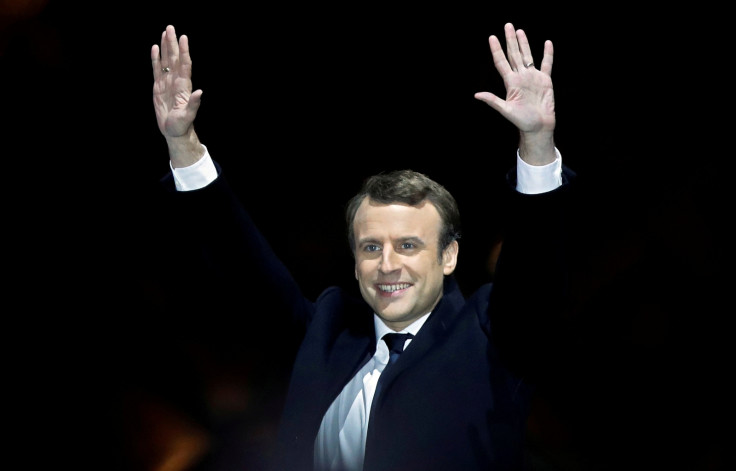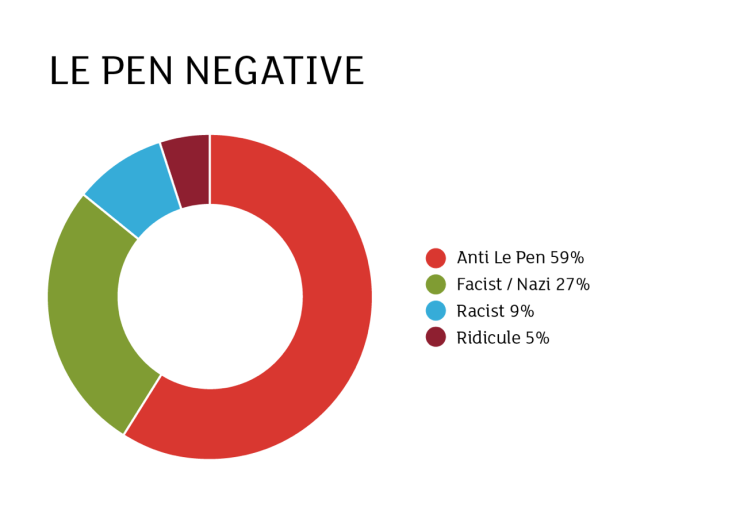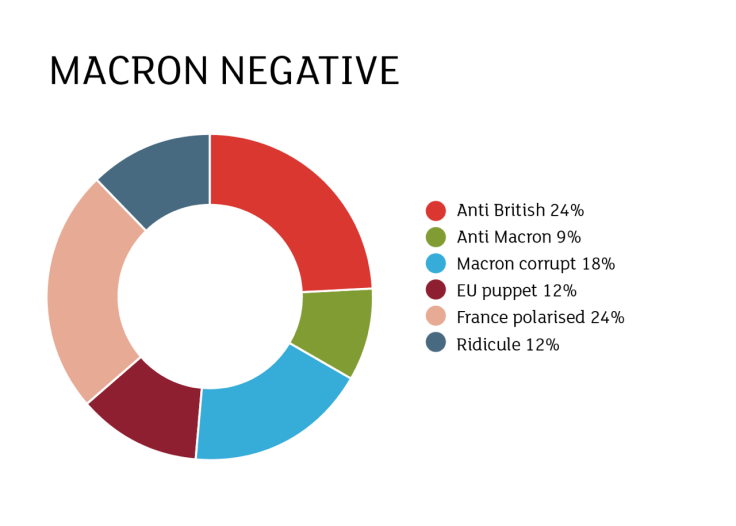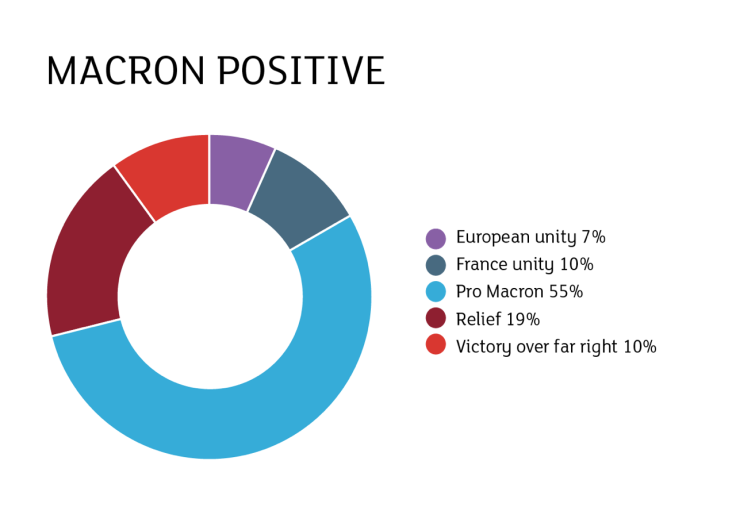Marine Le Pen's failure is welcome – but Brits fear Macron is an EU puppet
Social media analysis shows Brits aren't entirely convinced by French President-elect.

France do things better than us. They have better food, better wine – and now they have better elections. So much more threat and drama than our own tedious parade to Tory domination. It turns out that we've actually been rather partial to the drama over the Channel.
The sense you get from the media is that a huge sigh of relief has escaped the UK's collective lips, that our neighbours aren't as fascist as we thought and that the nice young man Emmanuel Macron is in charge, rather than the shouty Marine Le Pen.
But while we've been fascinated by the French vote, we're rather more ambivalent about the outcome than media commentators would have it.

The social media analysis company Impact Social looked at posts, tweets and comments on open news pages surrounding the French election, removing retweets and obvious political and media commentators and influencers.
That left them with 280,000 posts around the British election and 91,000 about the French. Which betrays rather a high level of interest in, and perhaps worry about, a foreign election.
The perceived issue, that Le Pen would triumph and pour fuel on the flames of immigration and EU debates while keeping Nigel Farage on our screens as her UK cheerleader, has been replaced by another – than Macron might not be the shining knight we all thought. That he's not the European Justin Trudeau after all.
While much of the commentary on social media is neutral (simply reporting facts rather than offering views), the opinion on Macron and Le Pen was more divided than might be imagined.
Each had a fairly even divide of positive, each scoring slightly more negativity than support. Which is to say that Macron, the supposed saviour of France and the EU, scored more negatively than positively on this side of the water.

The positivity was centred around a vague sense of pro-Macronism, even if no-one quite knew what that was, with 55% of his positive posts merely expressing some level of enthusiasm.
The rest centred on a sense of relief and a gratitude about a victory over the far right and hailing him as the saviour of French and European unity.
The negativity was much more specific. He was perceived as anti-British, perhaps driven by his courting of the financial sector to move to France, post-Brexit. There was also a sense that he is corrupt, fuelled by dark, unproven, allegations of overseas bank accounts and by the clouds surrounding the email leak.
He was also viewed as a puppet of the EU and a man simply incapable of turning a divided France around. In short, that he was a malleable, career politician of little substance.

British sentiment around Le Pen, meanwhile, was driven by similar emotional triggers to those which pushed Ukip in the past – the sense of populist nationalism and supposed strength that her brand of politics is supposed to deliver.
There was a belief within it all that France had missed its chance to save its national character, under a perceived threat from immigration.
Not unsurprisingly, that same sentiment was viewed by anti Le Pen posters as racist and fascist. But there was only one percentage point of difference between them (in admittedly fairly low numbers).
The British watchers enjoyed the drama of the French election and the spectacle of the victory parade at the Louvre but they are not convinced by the result.
Unsure of someone so slick and quick to rise to the top, and not convinced by the firmness of his convictions, there's a sense of expectation that Macron himself may not be up to the mark when it comes to delivery.
It may be the UK's national cynicism at work, but while few are willing him to fail, not many are holding their breath in expectation of success either.
© Copyright IBTimes 2025. All rights reserved.






















